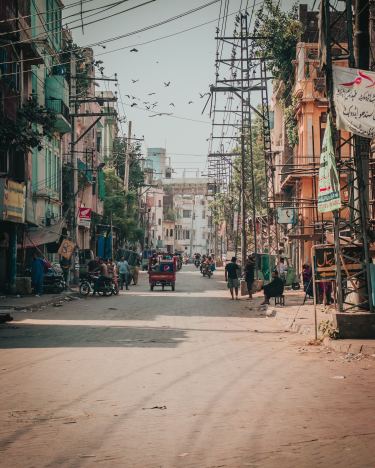
A Pakistani Christian pastor walked free Thursday after spending 13 years in prison on blasphemy charges he consistently denied, following a landmark decision by the Lahore High Court that overturned his death sentence.
Zafar Bhatti, 62, was acquitted by the Lahore High Court’s Rawalpindi Bench on 2 Oct. 2025, ending an ordeal that began in July 2012 when he was accused of sending blasphemous text messages insulting Prophet Muhammad’s mother.
The court accepted arguments presented by Bhatti’s lawyer, Saif ul Malook, who successfully demonstrated that the prosecution’s evidence was insufficient to sustain a conviction.
“This is only corroborative evidence since the main evidence had been discarded. On the basis of a voice recording alone, no conviction can be based,” Malook told the court during a hearing on 25 Sept., reported British Asian Christian Association.
Justices Jawad Hassan and Muhammad Waheed Khan presided over the hearing. Justice Hassan rejected the prosecution’s claim that a SIM card used to send the messages was linked to Bhatti’s phone, noting that Pakistan’s telecommunications system requires the actual SIM owner to be present during activation.
BACA reported that when news of the acquittal reached Bhatti’s cousin, Mona Bibi, she leapt with joy with the news praising God: “Thank you so much for giving us this great news.”
Bhatti’s wife, Nawab Bibi, “wept with relief and gratitude” upon hearing the news, saying “she felt she had been given a new lease of life. For the first time in over a decade, she can imagine holding her husband again outside prison walls,” BACA reported.
A 13-year ordeal
Bhatti’s troubles began when a local Islamic leader, Ibrar Ahmad Khan, filed a complaint at New Town police station in Rawalpindi in July 2012. Khan claimed he had received blasphemous text messages from an unregistered number and threatened that his organisation would take matters into its own hands if authorities did not investigate.
Police registered a case against an unknown person but later arrested Bhatti, charging him under Section 295-C of the Pakistan Penal Code, which carries the death penalty. During interrogation, officers tortured him to extract a confession, but he maintained his innocence.
Before his arrest, Bhatti worked selling medicines and often went door to door reading the Bible and praying with families. He had founded a small NGO called Jesus World Mission to assist the poor.
Several reports proved the SIM card was not registered to Bhatti but to his colleague, Ghazala Khan. She was arrested in November 2012 and charged with blasphemy. In April 2013, Justice Khalid Mehmood of the Lahore High Court granted her bail, showing leniency because she was a woman. Khan died in November 2016 from hepatitis C at age 39.
In May 2017, Additional District and Session Judge Mohammad Yar Gondal sentenced Bhatti to life in prison. Though Section 295-C mandates the death sentence, he received life imprisonment because of lack of evidence.
His appeal hearings were repeatedly adjourned. In October 2021, the Lahore High Court referred the case back to the lower court, and in January 2022, Bhatti was sentenced to death.
For years, three other charities had attempted to represent Bhatti, but his situation only worsened, culminating in the 2022 death sentence. It was then that the case was entrusted to BACA, they claim. The organisation had previously secured the acquittal of Asia Bibi, another high-profile blasphemy case that drew international attention.
Life in prison
Life in Adiala Central Jail proved brutal for Bhatti. He faced pressure from Muslim prisoners to convert to Islam and was beaten several times, reported Church in Chains. On March 31, 2013, his food was poisoned, causing bleeding from his nose and mouth and leaving him in critical condition for days.
He was kept in high security and not allowed out of his cell. For security reasons, court proceedings were sometimes conducted by judges in his cell.
In September 2014, rumours circulated of Bhatti been killed. Whereas, the actual victim was a 71-year-old British Muslim Muhammad Asgh – a prisoner in an adjacent cell, who was also sentenced to death for blasphemy. Police officer Muhammad Yousaf, who was deployed to protect Asghar had shot him in the chest. Asghar survived the attack and officer Yousaf was arrested, who later admitted his plan to kill all prison inmates accused of blasphemy.
Bhatti developed serious health problems during imprisonment. He was diagnosed with diabetes and suffered multiple heart attacks in 2019 and 2020. By June 2025, despite receiving insulin twice daily, his blood sugar levels remained dangerously high and he had wounds on his feet and legs. He also suffered from hypertension, vision problems and depression.
A wife’s struggle
Throughout Bhatti’s imprisonment, his wife, Nawab Bibi, now 76, endured her own ordeal. The couple have no children. Nawab’s health deteriorated steadily over the years. She became blind in one eye and developed hearing difficulties. A staircase fall in April 2025 resulted in a hairline fracture to her leg. In March 2023, Nawab moved from Islamabad to Lahore, where the BACA arranged accommodation for her in the majority-Christian Youhanabad area. She was safer there but much further from her husband’s prison.
By August 2025, Nawab’s condition had worsened significantly. Her health deteriorated sharply, with blood counts dropping to critical levels while her blood pressure spiked dangerously. The British Asian Christian Association arranged emergency treatment and employed a professional caregiver, Naseem Akhtar, to look after her daily needs.
“I thank BACA for arranging a caregiver when no one in my family could take care of me,” Nawab said.
During a prison visit, Bhatti expressed appreciation: “I am thankful to BACA for taking care of my wife. She has grown old and cannot take care of herself now.”
Years of delays
The path to justice proved agonisingly slow. Since May 2024, courts scheduled 10 hearings, but the original complainant continued filing applications to submit additional evidence. Judges rejected his requests, emphasising that all evidence should have been recorded earlier.
A hearing scheduled for May 2, 2024, collapsed when no judge was willing to hear the case. Supporters noted that judges in Pakistan have been unwilling to hear blasphemy appeals because of intimidation and pressure from the public to hand down convictions regardless of evidence.
In October 2024, a scheduled hearing collapsed because the complainant’s lawyer failed to attend. In January 2025, the hearing was rescheduled without progress. In following months, the complainant’s lawyer alternately arrived late, sent assistants or claimed accidents to avoid appearing.
Throughout these delays, Malook consistently fought to prove Bhatti’s innocence, repeatedly showing the court that forensic reports were never submitted.
“The court must release Zafar Bhatti if the court does not wish him to die in the prison where he has been for the last 13 years,” he told the British Asian Christian Association.
A hearing scheduled for June 12, 2025, was postponed to June 19, but the complainant’s counsel failed to appear and no new date was announced. The final hearing date was set for Sept. 25, which ultimately led to the acquittal decision announced Oct. 2.
Pakistan’s blasphemy laws
Bhatti had become Pakistan’s longest-serving blasphemy prisoner. His case highlights the controversial use of Pakistan’s blasphemy laws against religious minorities.
Human rights groups have long noted that blasphemy laws in Pakistan are often exploited to settle personal rivalries or persecute minorities. Despite numerous arrests and death sentences issued for blasphemy since the late 1980s and early 1990s, no one has been executed by order of the courts or government.
Safety concerns remain
While the acquittal ends a painful chapter in Bhatti’s life, acquittal does not equal safety in Pakistan. Christians cleared of blasphemy charges face violent reprisals from extremists, and many must live in hiding indefinitely.
Bhatti’s case has drawn national and international attention, putting him and his wife in greater danger. The British Asian Christian Association has written to the UK Home Office, Foreign Office, and several British parliamentarians including Lord Alton, Baroness Warsi, Joe Powell MP and Jim Shannon MP, urging urgent intervention to secure asylum for the couple.
The organisation says it must urgently provide a new safe house in Pakistan, round-the-clock security to protect the couple from extremist retaliation, and medical treatment and living expenses until asylum can be secured.
Bhatti now faces the challenge of rebuilding his life after 13 years of imprisonment while caring for his elderly and ailing wife, all while navigating the threat of violence that continues to loom over those acquitted of blasphemy charges in Pakistan.




